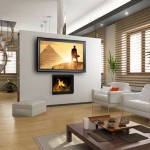Is There A Way To Screen Mirror iPhone to Mac?
Mirroring an iPhone screen to a Mac offers significant advantages for various tasks, from presentations and demonstrations to troubleshooting and entertainment. Fortunately, several methods exist to achieve this, each with its own strengths and limitations.
Methods for Screen Mirroring iPhone to Mac
Users can choose from several reliable methods depending on their needs and available software/hardware:
- QuickTime Player
- AirPlay to Mac (macOS Monterey and later)
- Third-Party Applications
QuickTime Player: Wired Solution for Reliable Mirroring
QuickTime Player, a pre-installed application on macOS, offers a wired solution for screen mirroring. This method provides a stable connection and high-quality mirroring, making it ideal for tasks requiring precision and low latency. To use QuickTime Player:
- Connect the iPhone to the Mac using a Lightning cable.
- Open QuickTime Player on the Mac.
- Select "New Movie Recording" from the File menu.
- Click the dropdown arrow next to the record button and select the iPhone as the camera and microphone source.
AirPlay to Mac: Wireless Convenience for Compatible Devices
For users with macOS Monterey or later, AirPlay to Mac provides a seamless wireless mirroring experience. This feature allows users to stream content directly from their iPhone to their Mac screen. Key considerations for AirPlay include:
- Both devices must be on the same Wi-Fi network.
- Mac models must be from 2018 or later, and iPhone models must be iPhone 8 or later.
- AirPlay mirroring might consume more battery power on both devices compared to wired solutions.
To use AirPlay to Mac:
- Open Control Center on the iPhone.
- Tap "Screen Mirroring."
- Select the Mac from the list of available devices.
Third-Party Applications: Extending Functionality and Compatibility
Several third-party applications offer screen mirroring capabilities, often with added features. These applications can bridge compatibility gaps for older Mac models or provide advanced functionality such as recording, annotation, and remote control. When considering third-party apps:
- Research reputable apps with positive user reviews.
- Understand potential costs and subscription models.
- Verify compatibility with the specific iPhone and Mac models and operating system versions.
Popular third-party options include but are not limited to:
- Reflector 4
- LonelyScreen
- AirServer
Choosing the Right Method
The optimal method depends on the specific needs of the user. Factors to consider include:
- Latency requirements: Wired connections generally offer lower latency.
- Compatibility of devices and operating systems.
- Need for additional features like recording or annotation.
- Convenience of wireless versus wired solutions.
Troubleshooting Common Issues
Occasionally, users may encounter issues during screen mirroring. Common problems and potential solutions include:
- Connection problems: Ensure both devices are on the same network for AirPlay, or check cable connections for wired solutions.
- Lag or stuttering: Close unnecessary applications on both devices to free up resources.
- No audio: Check volume levels and audio output settings on both devices. Ensure the correct audio output is selected in QuickTime Player or the third-party app.
Keeping Software Updated
Maintaining up-to-date software on both the iPhone and Mac is crucial for optimal performance and compatibility. Software updates often include bug fixes and performance improvements that can enhance the screen mirroring experience. Regularly checking for updates ensures the best possible functionality.
Understanding the Limitations
While screen mirroring is a powerful tool, it is essential to understand its limitations. Certain apps, particularly those with protected content like streaming services, may restrict screen mirroring. This is often due to copyright and digital rights management (DRM) restrictions. Users should also be mindful of potential performance impacts, especially when using wireless mirroring, and close unnecessary applications to optimize resource utilization.
Utilizing Screen Mirroring for Different Purposes
Screen mirroring has a wide range of applications, including:
- Presentations and Demonstrations: Projecting an iPhone screen onto a larger display for presentations or training sessions.
- Gaming: Playing mobile games on a larger screen.
- Troubleshooting: Sharing the iPhone screen with technical support for assistance.
- Content Creation: Recording tutorials or gameplay videos.
Security Considerations
When using wireless screen mirroring, ensure the network is secure to protect privacy. Avoid mirroring sensitive information on public Wi-Fi networks. Using a strong password for the Wi-Fi network is recommended. For wired connections, ensure the cable and the connected Mac are trusted.

How To Mirror Iphone Display Macbook Ios 12 Macos Mojave

2024 Updated How To Mirror Iphone Mac With 5 Methods

2024 How To Mirror Iphone Display Mac Ios 14 And Big Sur

How To Mirror Iphone Mac Without Wi Fi

How To Mirror Iphone Screen Mac Free And Easy

2024 Updated How To Mirror Iphone Mac With 5 Methods

How To Use Apple Airplay Mirror Your Iphone Mac Screen On Tv Roku And More Cnet

5 Easy Steps To Mirror Iphone Mac Istreamer

How To Use Apple Airplay Mirror Your Iphone Mac Screen On Tv Roku And More Cnet

How To Mirror Iphone Windows Pc Laptop Mac Full Guide








